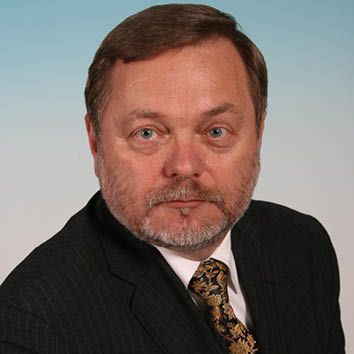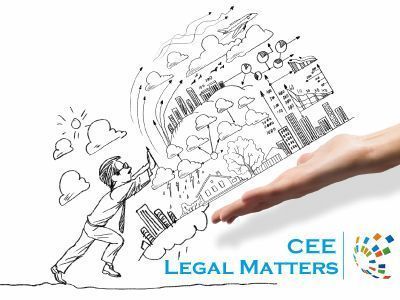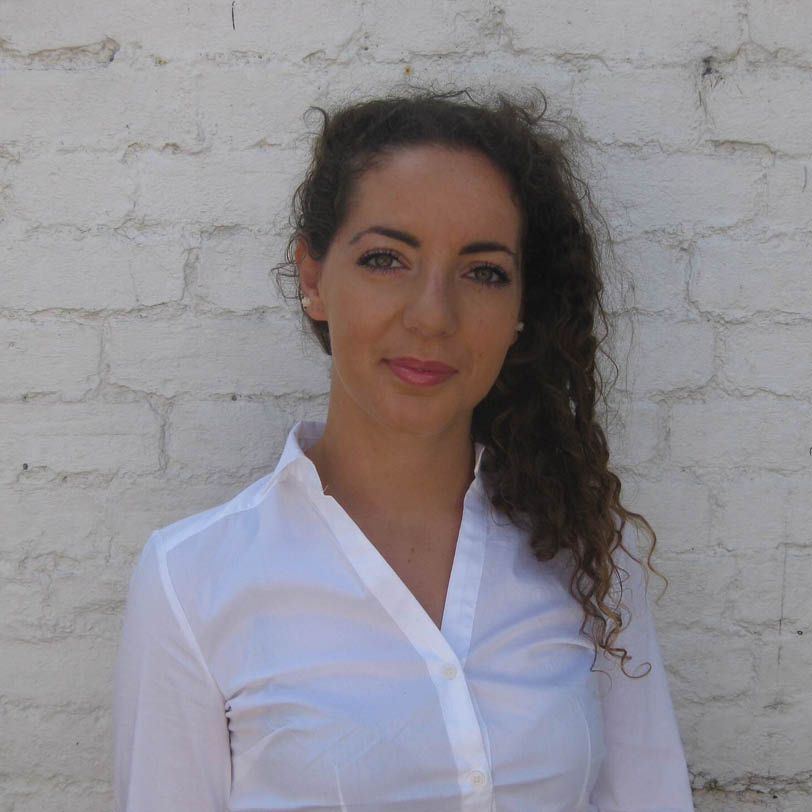CEE Legal Matters sat down with the General Counsel of TATRA TRUCKS, one of the oldest vehicle manufacturers in the world, which has always been situated in Koprivnice, a town in the eastern part of the Czech Republic, the Moravia-Silesia region.

Libor Vojtek, General Counsel, TATRA TRUCKS
CEELM: To start, please tell our readers a bit about your career leading up to your current role with TATRA TRUCKS.
L.V.: I graduated from the Law Faculty of the Jan Evangelista Purkyne University (today Masaryk University) of Brno, Czech Republic. Probably, as most young lawyers I could see my future career in the justice system; I found the idea of big and of course successful court battles very attractive. Therefore, after I finished my studies, I joined a law office as an attorney´s clerk. At that time it was not easy at all to get this position as advocacy work was subject to strict state regulation. Maybe I was lucky. However, after a short time my circumstances changed and I found myself at another place. I joined an industrial company and started primarily dealing with industrial ownership law. After another few years, at the age of 30, I was lucky again, and I was catapulted to the position of a CEO´s legal advisor. I learned a lot thanks to this jump. Later, I was trying to change to sales for some time; however, it did not last long and I returned to “genuine” law. New times brought new room for law as well as new challenges in law. So, I decided, finally, that law was the right way for me. In 1996 I became the head of the legal office of the TATRA motor company, which meant taking over managing 15 colleagues and coordinating the company´s activities with external law offices. As time passed by, the number of in-house lawyers was decreasing. The number of cooperating small law offices was going down as well, as we were changing to larger and more renowned law firms, which offered a wider portfolio of quality legal services under one roof.
CEELM: You have spent over 18 years with the company – probably one of the longest spans of all the GCs we interviewed. What is it about the company that has kept you there for such a long time?
L.V.: Actually, I have spent my entire life working for the same company. Although I have worked for more employers, their common denominator was always the production and distribution of TATRA trucks. I suppose that motor fans in Central and Eastern Europe know this brand. TATRA trucks have been around for more than 100 years; and the tradition of continuous production of vehicles dates back to the middle of the 19th century. I think it is worth being part of something like this. Definitely, it has not been monotonous or boring work because everything around is developing and changing and the constant movement and vortex of events makes you develop yourself, it makes you move forward, you don´t have a chance to stop. Yes, I am a patriot and I am proud of that.
CEELM: What does a regular day in the office look like? What takes up most of your time?
L.V.: Throughout my working life, I have relied on my colleagues, their expertise, and their ability to act and decide independently. Therefore, I have had time for my own legal work. It may seem that the everyday life of an industrial company cannot generate very interesting legal issues, but the opposite is true. Everyday life is very eventful. Every day you deal with issues from all legal areas – from issues of corporate nature, labor law, property and information protection, property administration to sales issues. I suppose I spend most of my time writing various contractual sales documents. The TATRA TRUCKS company employs experienced and qualified people, so when they need some legal help, it is usually an issue which does not have an easy and quick answer. You need to think and support your opinion with proper legal argumentation, sometimes by very extensive searches. We are lucky we have an electronic system of legal information and the Internet, which facilitate our work to a great extent. I cannot imagine working without these tools. Although our subsidiaries deal with their legal issues independently, it is necessary to coordinate these activities within the group and prepare data for one consistent legal view, if possible.
CEELM: What type of legal work do you prefer assigning to you in-house team as opposed to externalizing to law firms?
L.V.: Legal issues of a sales nature are dealt with internally. Goods, sales contacts, and the company´s everyday life have their own specific features and to introduce someone external into this complex state is too complicated and very time-consuming, considering the fact that business does not like waiting. In my opinion it is good to have external attorneys dealing with issues relating to contentious issues: first, due to the experience of professionals well- versed in relevant procedures, second, for a certain distance of external attorneys from the case; I think they may come up with different points of view on contentious issues.
CEELM: When do you need to outsource work, what are the main criteria you use in selecting the external counsel you will work with?
L.V.: We have been cooperating with external law offices for the entire existence of our company. In the past we cooperated with a large number of small law offices, or independent attorneys, maybe because of lower costs and also due to an informal and usually quick response; gradually, however, we have changed to bigger law firms which offer full legal service and can rely on perfect and broad background. Usually, we can also cooperate with such a law firm abroad, which, considering the many business activities of ours, is a great advantage. An advantage of these law firms is their stability, high standards, and their portfolio of services – and last but not least their perfect knowledge of languages. The risks, of course, may involve less introspection and self-analysis and, of course, higher costs. These firms sometimes do not offer the same level of services in the area of non-contentious and contentious issues. I admit that as regards disputes, we tend to choose specialized, i.e. smaller partner law firms. They seem more suitable in terms of direction and also they act more swiftly. We use different ways to find our partners; we use tenders for long-term cooperation as well as for particular issues; sometimes, a good recommendation plays a role in our decisions. The offer is wide. I know many good lawyers and law offices in the Czech Republic…
CEELM: Commercial territories for the company range considerably, including Russia, the former CIS countries, Israel, India, the countries of the Arab peninsula, Australia, the U.S.A., and Europe. What specific challenges does that give rise to for you as the person responsible for legal matters?
L.V.: If you have sales activities in so many different territories, as our company does, you cannot get along without a reliable partner for individual countries or legal areas. No one can globally manage all legal issues. If you combine your basic specialization, a reliable local partner, a choice of legal institutes and tools with the adequate amount of humility and caution, you will see results. However, despite careful preparation, which everything is based on, yet you have to face uncertainty in a lot of cases. Life is unpredictable…
CEELM: According to your company´s profile, the Czech Army is your largest domestic client. Does that impact you works in any way?
L.V.: The Czech Army is not the only business partner of ours but, in principle, due to cooperation with local partners, the armed forces of other countries are our customers as well. I wouldn’t say that this fact substantially influences law services. An army is a customer too, and all customers expect that they will be taken care of perfectly, they will get a perfect product or be provided a perfect service, and they will pay as little as possible. Armies just require more detailed descriptions, nothing can be skipped or left out, all their “boxes” have to be “ticked”… but this rather is a joke.
CEELM: A year ago, the buzz-word in the Czech market used to be the New Civil Code. To what extent did it affect your business and have things calmed down in the interim?
L.V.: The recodification of civil law is still a very topical issue and influences everyday legal issues in the Czech Republic very much. I think it will still take a long time until not only lawyers but also the entire nation gets used to changes and new things; it is not only about the new Civil Code, it is also about dozens or hundreds of new and amended legal regulations – lives of all lawyers are influenced by them. First, it was necessary to read these new standards, study regulations and new professional books, and take in opinions that were changing almost every day. Subsequently, it was necessary to review and modify fundamental corporate documents and adjust all contractual standards. It was necessary to gradually inform company employees as well as to adjust internal processes and relationships. It has been six months now and we are far from finished in dealing with all these things.
I do not wish to evaluate the recodification of the Czech civil law. First, I do not feel I am the right person to do that, second, you need to do it after some time – as you do with each historical event. And, without any doubt, the recodification of the Czech law is a historical event; it is a huge piece of work of extraordinary importance. Maybe, at the final stage, things were finished too quickly, as if political ambitions overtook legal argumentation, but, who knows, if this had not happened, would there be any recodification soon? The entire issue just needs time – from a historical point of view, six months means basically nothing. Let me remind you that the former Civil Code, including many amendments and changes, was effective for more than fifty years.
CEELM: On the lighter side, if you had to pick any other industry to work in as a General Counsel, what would it be? What about the flip-side, which one would you definitely avoid?
L.V.: Although I am not a technician, I love, said in the archaic language and language of literature, the smell of petrol. Therefore, I cannot really imagine myself working in a different industry. There are good and bad things about everything, you cannot separate them. You need to take things as they come.
 If you would like to receive regular updates on CEE cases, deals, lateral moves and promotions, and legal awards or if you want to sign up to receive a hard copy of our upcoming magazine please subscribe here. {/simplepopup}
If you would like to receive regular updates on CEE cases, deals, lateral moves and promotions, and legal awards or if you want to sign up to receive a hard copy of our upcoming magazine please subscribe here. {/simplepopup}


